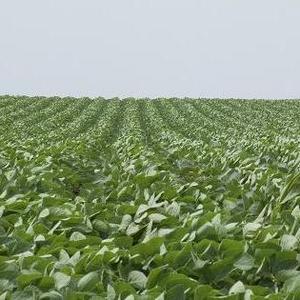Evogene, DuPont Pioneer extend joint work to fight soybean rust

October 16, 2013
BY Ron Kotrba
Plant genomics company Evogene Ltd. announced a one-year extension and expansion of its multiyear research collaboration with DuPont Pioneer for developing soybean varieties resistant to Asian Soybean Rust, a major disease that strikes the crop in prime growing regions of North and South America.
As part of their original collaboration signed in 2011, Evogene and Pioneer established a joint research program to identify and validate novel genes portraying the highest probability for in-plant resistance to Asian Soybean Rust. Under the program, novel genes identified by Evogene will be evaluated and validated by Pioneer in their soybean research lines as possible leads for further development and commercialization.
Under the extension, the parties will add Evogene's trademarked Gene2Product computational platform to the gene discovery program. The platform, which offers gene optimization by utilizing advanced gene stacking, or the combining of multiple genes, and regulation prediction, is designed to improve the efficacy and probability of success of the resulting novel seed products.
Advertisement
Advertisement
“Under the … program to date, significant progress has been made and an excellent collaborative relationship established,” said Ofer Haviv, Evogene president and CEO.
“Asian soybean rust remains a challenge for growers,” said Gusui Wu, senior research director with DuPont Pioneer. “We value our collaboration with Evogene and their technology strengths to help deliver effective resistance to this devastating disease to our customers.”
Advertisement
Advertisement
The original collaboration program included partial funding by the Israel-U.S. Bi-national Industrial Research and Development (BIRD) Foundation, which supports and encourages cooperation between Israeli and American companies in various areas of technology.
Evogene’s current gene discovery activity in the field of biotic stresses—stresses caused by pests such as fungi and insects—is one of the company’s four product divisions.
“I believe the field of acute biotic stresses holds a significant opportunity for Evogene,” Haviv said. “This opportunity will be derived from expanding our existing programs, as well as focusing on new biotic stresses that are not currently part of our discovery portfolio.”
Related Stories
The U.S Department of Energy Bioenergy Technologies Office, in partnership with the Algae Foundation and NREL, on July 21 announced the grand champion and top four winning teams of the 2023 - 2025 U.S. DOE AlgaePrize Competition.
The USDA significantly increased its estimate for 2025-’26 soybean oil use in biofuel production in its latest World Agricultural Supply and Demand Estimates report, released July 11. The outlook for soybean production was revised down.
U.S. fuel ethanol capacity fell slightly in April, while biodiesel and renewable diesel capacity held steady, according to data released by the U.S. EIA on June 30. Feedstock consumption was down when compared to the previous month.
The U.S. EPA on July 8 hosted virtual public hearing to gather input on the agency’s recently released proposed rule to set 2026 and 2027 RFS RVOs. Members of the biofuel industry were among those to offer testimony during the event.
The USDA’s Risk Management Agency is implementing multiple changes to the Camelina pilot insurance program for the 2026 and succeeding crop years. The changes will expand coverage options and provide greater flexibility for producers.
Upcoming Events










